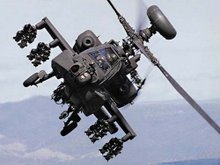Military Defense Lawyer
(Former JAG Attorney) News:
Recently, a military officer defended by attorney Richard V. Stevens (Military Defense Law Offices of Richard V. Stevens, P.C.) was retained in the military after facing involuntary administrative discharge action.
In the military justice system, a military member can face involuntary administrative discharge action (“getting kicked out”) for a variety of reasons. These reasons can include alleged misconduct. If the military member is not authorized to have their case heard in an administrative discharge board hearing (“Show Cause” board, “Board of Inquiry” [BOI], “Officer Elimination” board), then the case is decided based on the member’s written rebuttal package.
In this case, the military member had previously received a disciplinary action for alleged misconduct, but was a junior officer who was not authorized an administrative discharge board hearing. We were hired to represent the officer client in preparing the written rebuttal package in response to the involuntary administrative discharge notice.
A written rebuttal package for an administrative discharge case can include the member’s response statement and argument for retention, letters of support, awards and decorations, performance reports, other accomplishments and recognitions, and military career documents.
The disadvantage of not being entitled to a board hearing is that the board deciding the case does not hear from the member personally, or hear from witnesses, or hear the attorney arguments. Instead, they consider a written package, so it must be particularly compelling to achieve retention.
In this case, we submitted a compelling package that included obtaining and submitting important letters of support. Ultimately, after reviewing the rebuttal package, the officer client was retained in the military to continue serving. Because this was an administrative case, more details cannot be provided to protect the client’s privacy.
While this involuntary administrative discharge case was successfully defended, and the client was retained in the military, it is important to understand that every case has different facts, and success in previous cases does not guarantee success in any particular future case. No military lawyer or civilian defense lawyer, including those who specialize in military law, can guarantee the outcome of any military trial or case.
For more information about the military justice system, particularly cases involving administrative discharge actions, see:
https://militaryadvocate.com/practice-areas/administrative-discharge-separation/
We offer free initial consultations for a case you may be involved in. Just call us.
Thank you.
Military Defense Law Offices of Richard V. Stevens, P.C.
Civilian
Criminal Defense Lawyer and Military Defense Lawyer
Blog postscript: I (attorney Richard V. Stevens) am a former active duty military lawyer (JAG). My perspectives and advice, therefore, are based upon my experience as military defense lawyer and as a civilian criminal defense lawyer practicing exclusively in the area of military law and military justice. This blog addresses issues in military law, military justice, military discipline, military defense, court-martial practice, the Uniform Code of Military Justice (UCMJ) and other military and/or legal topics. Nothing posted in this blog should be substituted for legal advice in any particular case. If you seek legal advice for a particular case, please contact The Law Offices of Richard V. Stevens for a free consultation. These military defense law offices are located in the Washington DC, Northern Virginia, Maryland, National Capital Region (NCR), but the military defense representation is worldwide – when necessary, the attorneys travel to wherever the client is stationed around the world.
































